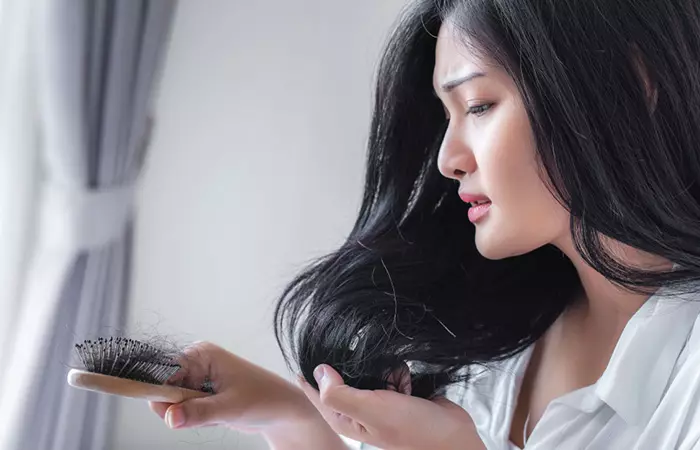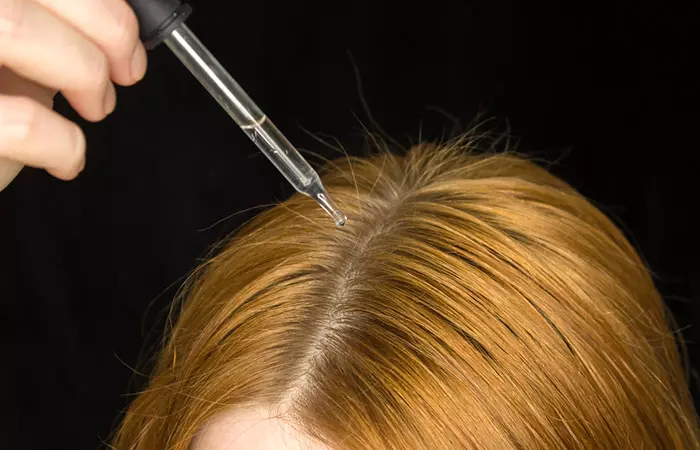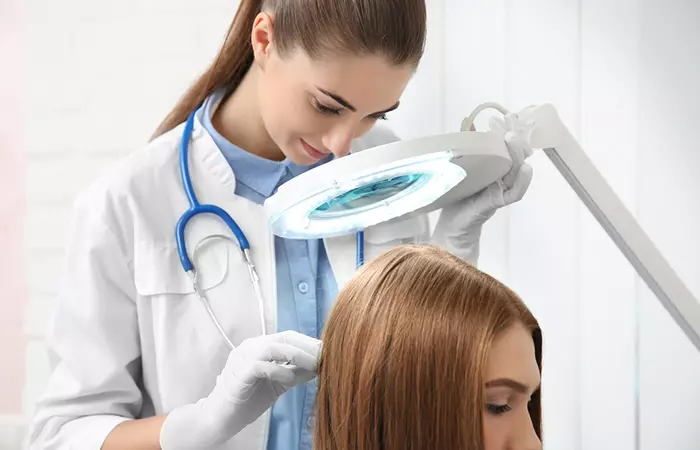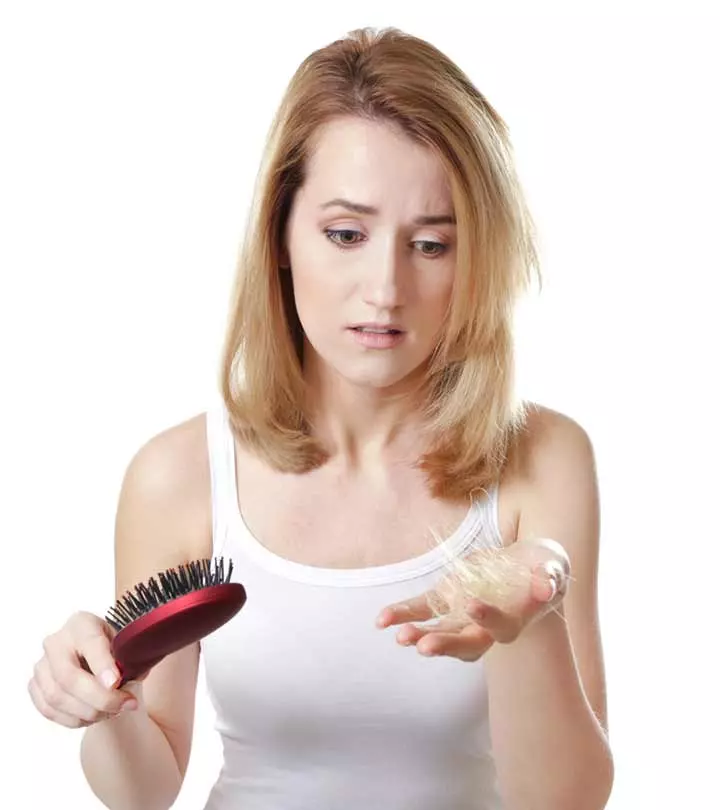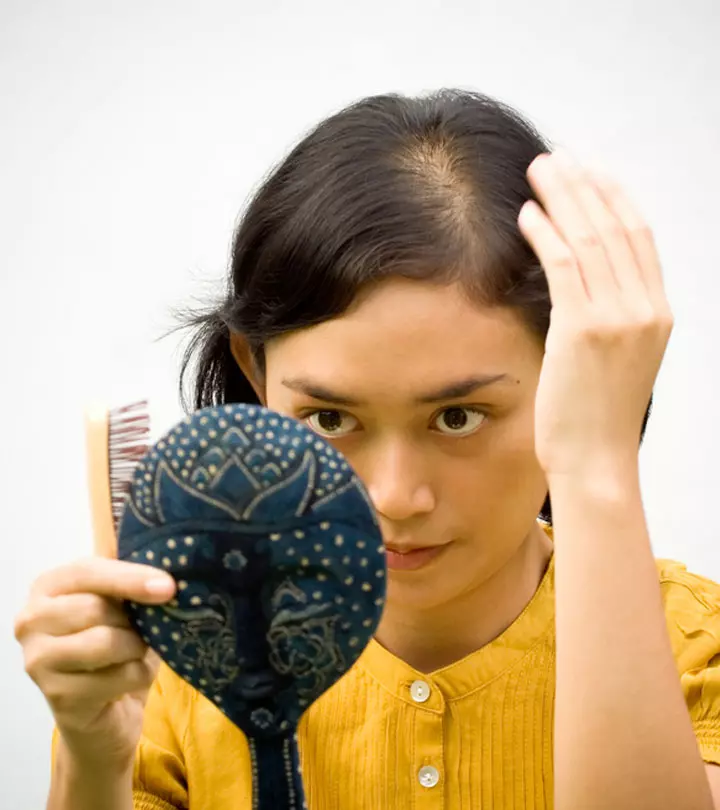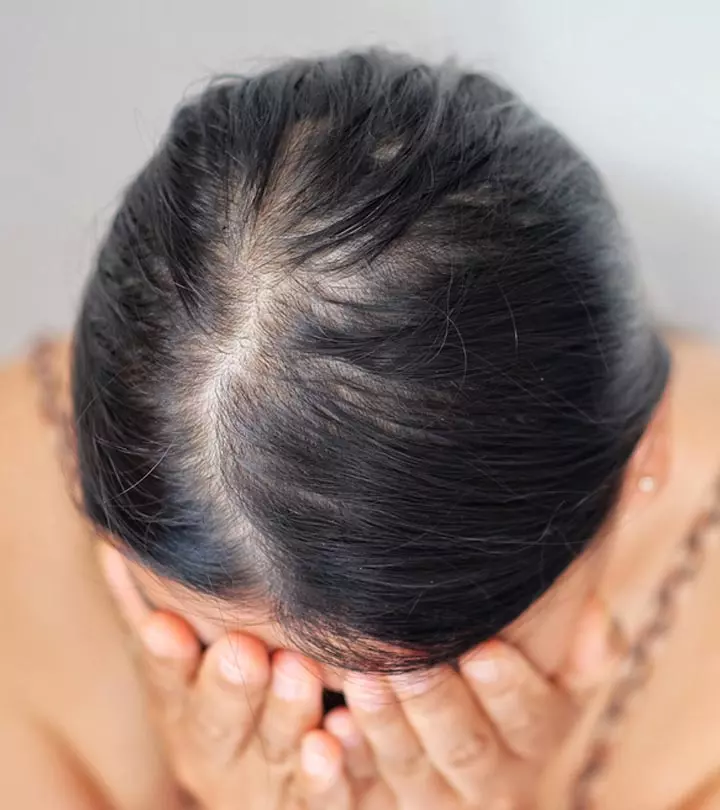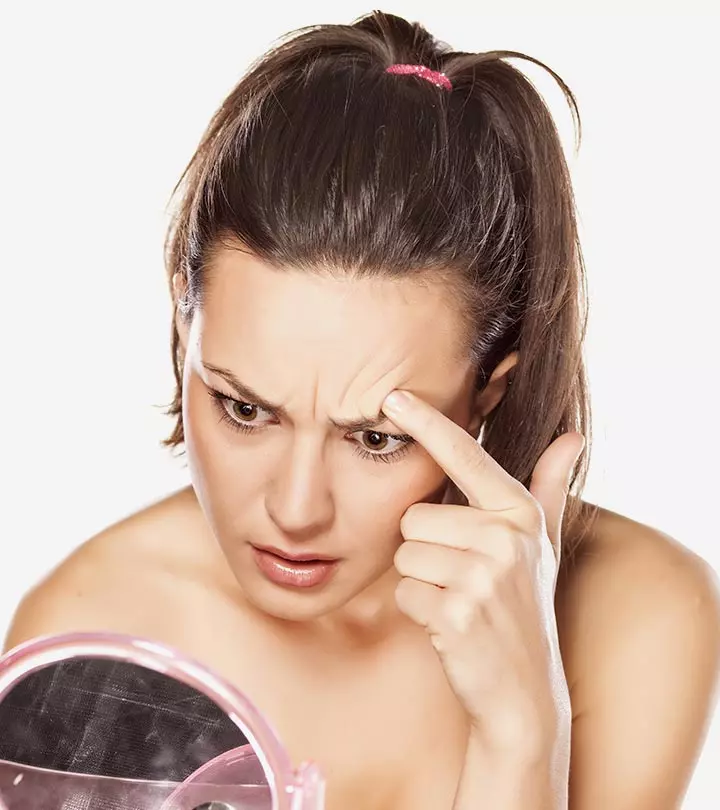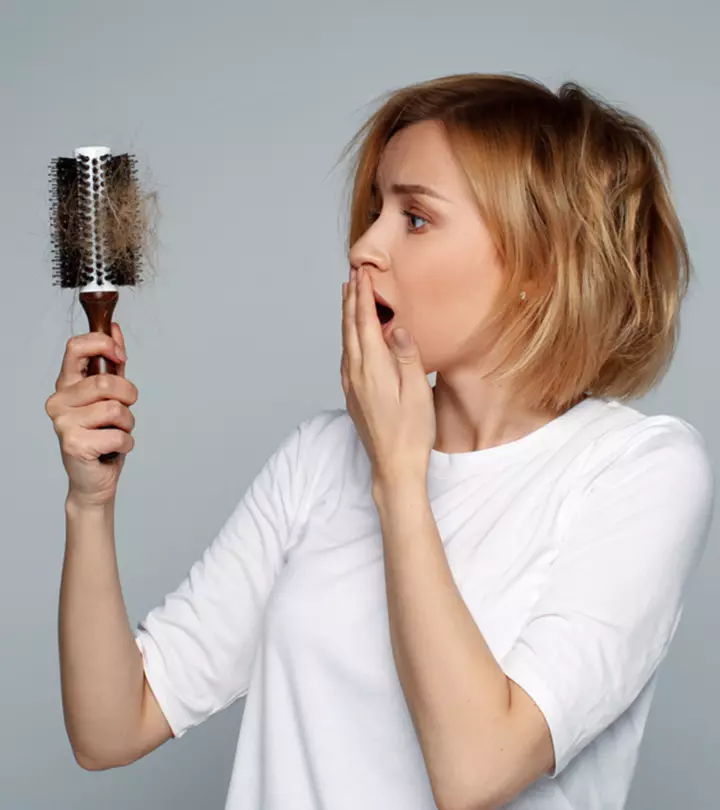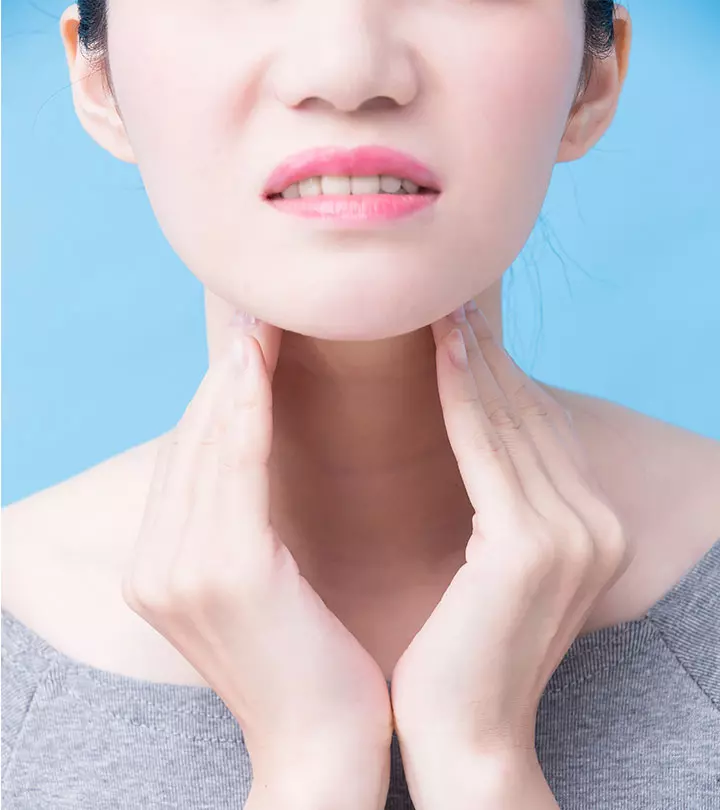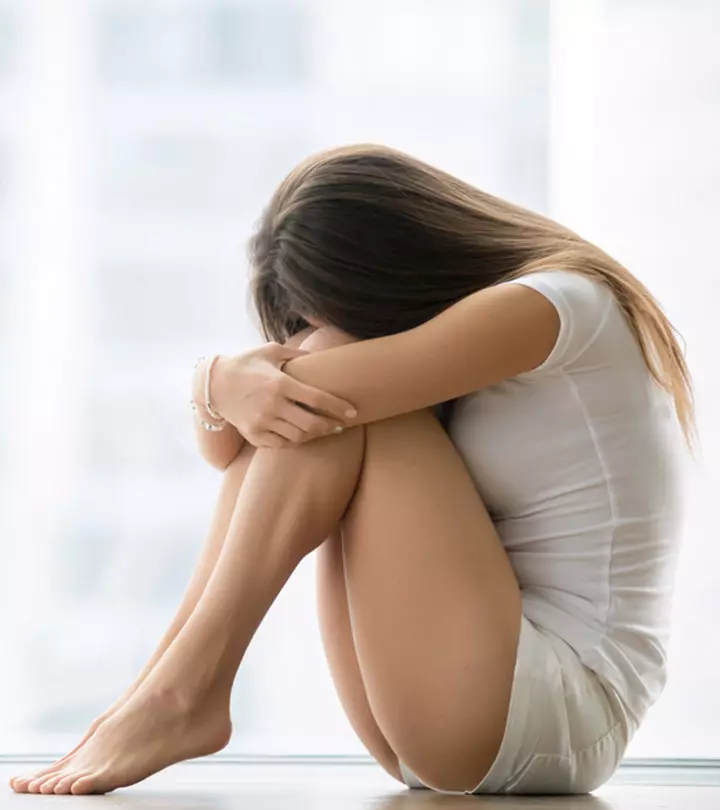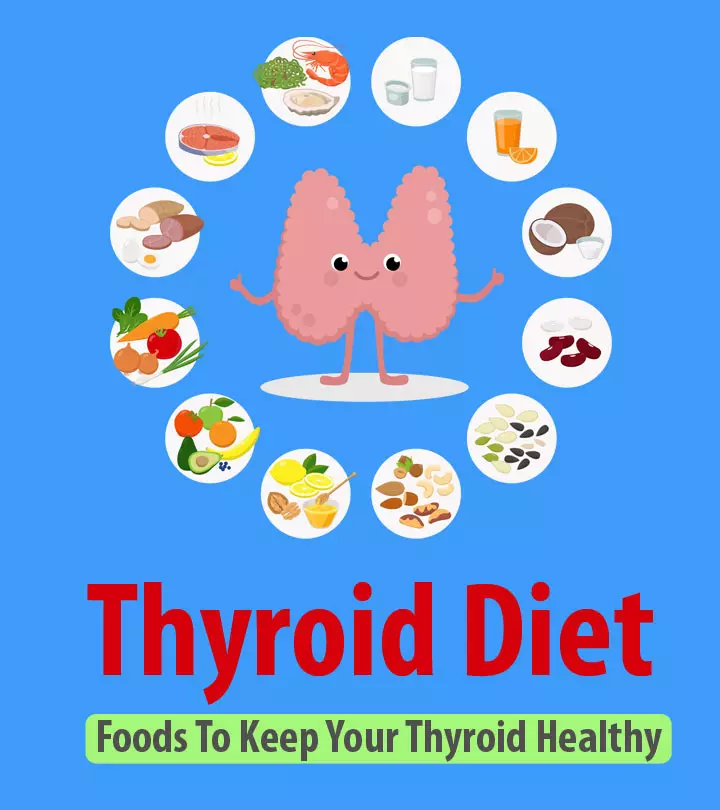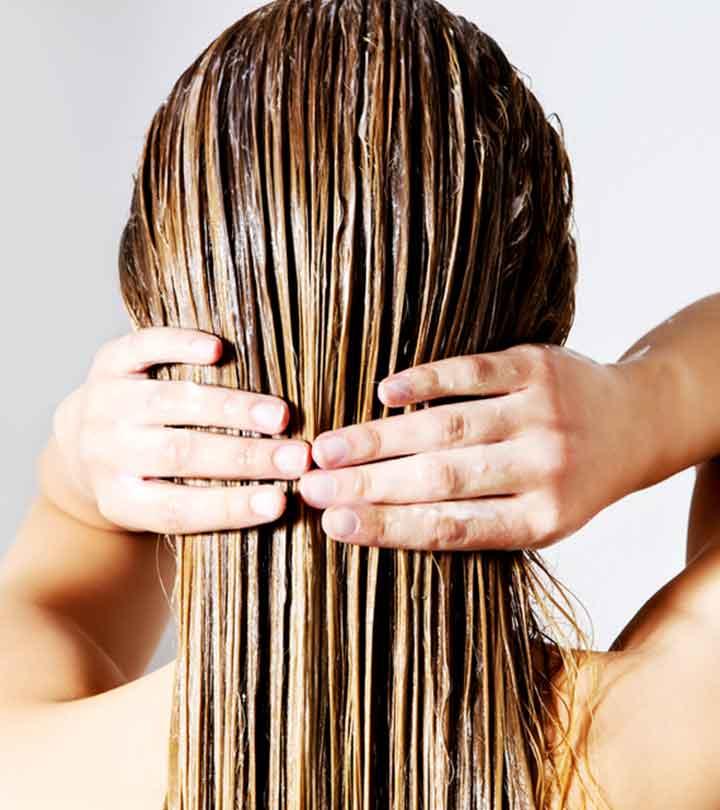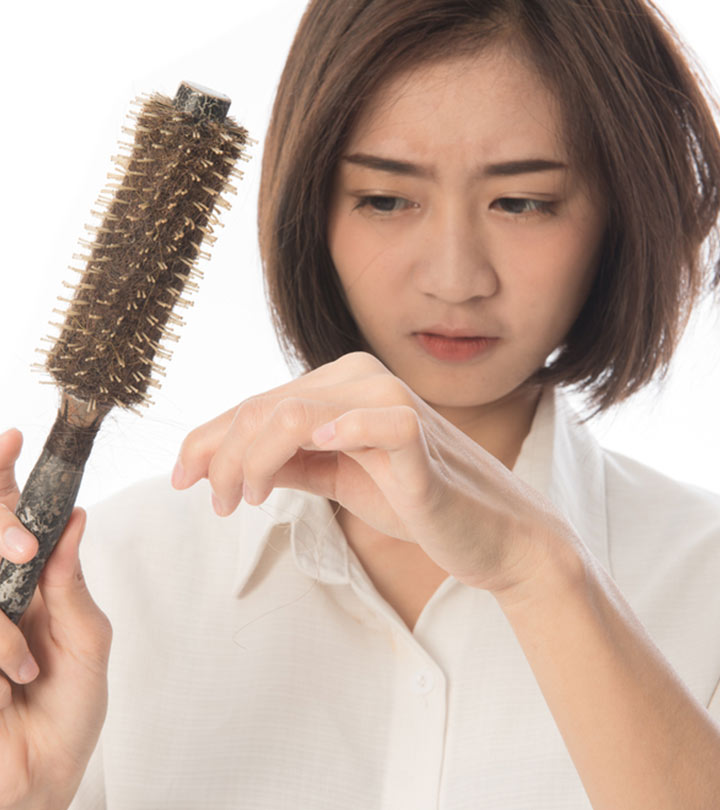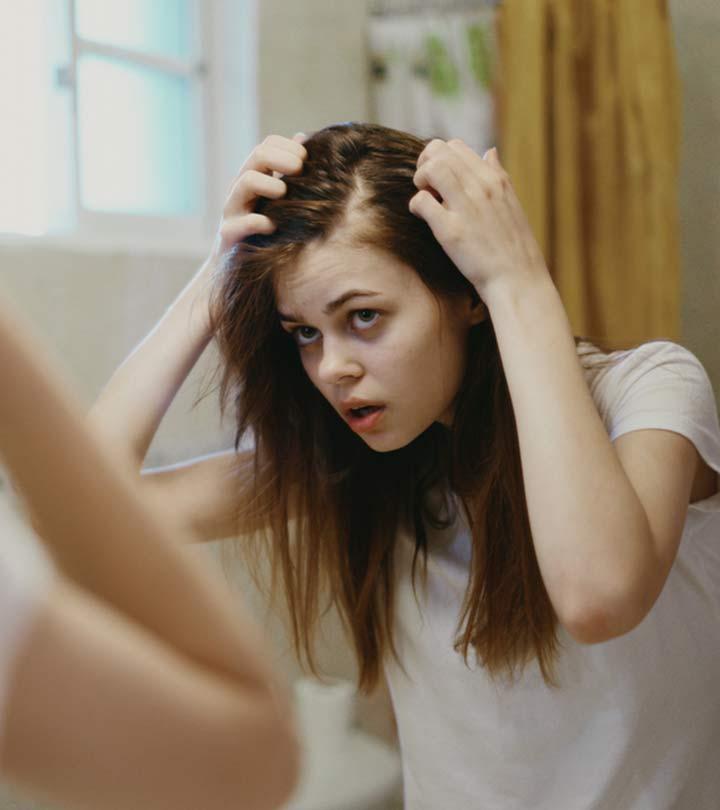Does Levothyroxine Cause Hair Loss In Women? How To Prevent It
Understanding the link between the two can help you save your mane in time.

Image: Shutterstock
Drug-induced hair loss is a condition where some oral medication may cause your hair to fall out. Some individuals often complain that Levothyroxine causes hair loss (1). This oral medication is prescribed to treat hypothyroidism. While it does help treat hypothyroidism symptoms, what does science say about its relation to hair loss? Keep reading this post to learn more about the link and what you can do to stop the hair loss.
In This Article
Does Levothyroxine Cause Hair Loss In Women And Children?
To understand if levothyroxine causes hair loss, we need to dive deep into the relation between thyroid dysfunction and hair loss. Thyroid dysfunctions are known to cause hair loss. Hypothyroidism (low thyroid functioning) causes the scalp to become oily due to an insufficiency of thyroid hormones. It also makes hair coarse and scanty, and may even lead to baldness. Excess thyroid function, on the other hand, causes hyperthyroidism that also makes hair fine and very scanty. Hair thinning is a common occurrence. Such thyroid imbalances can cause alopecia areata (2).
While levothyroxine is used to treat thyroid imbalances (and their associated side effects, like hair loss), it also may cause hair loss in some cases.
 Did You Know?
Did You Know?In a study, a 10-month infant diagnosed with hypothyroidism faced sudden diffuse alopeciai Autoimmune condition causing hair loss that affects the whole of the scalp beyond concentrating in localized areas, thereby leading to reduced hair density. on the scalp (3). The cause was found to be an overdose of levothyroxine, leading to an excessive thyroid function, causing hair loss. Hair loss occurred after two weeks of starting levothyroxine and ended a few days after the dosage was reduced. This shows that there needs to be an accuracy in the prescribed dosage. When ingested in the appropriate dosage, levothyroxine only balances the thyroid level without causing hair loss.
In another study conducted with 255 women, thyroxine (commonly levothyroxine) was shown to cause diffuse hair loss (4). This shows that anti-thyroid medication can cause drug-induced hair loss.
Drug-induced hair loss leads to either telogen or anagen effluvium (5). Telogen effluviumi Temporary hair loss usually caused due to stress or trauma. A condition of generalized hair loss noticed for two to three months following the trigger events. normally occurs two to four months after you start taking the drug (including levothyroxine). Anagen effluviumi Loss of hair in the initial stages of the hair growth cycle (anagen). It is rapid and caused mostly due to chemotherapy, drugs or toxins. occurs within a few days or weeks from drug intake. These can lead to patterned or diffused hair loss and can be acute or chronic.
Hair loss is a common occurrence in pregnancy due to changes in hormone levels. Although it may cause hair loss, levothyroxine is one of the few medications safe for pregnant and nursing women (6).
Should You Discontinue Levothyroxine To Stop Hair Loss?
Since treatment with levothyroxine is lifelong, it cannot be discontinued. But depending on your thyroid levels, the dosage may be increased or decreased. Stopping anti-thyroid medication can have severe effects on the body. But there are some other treatment suggestions and lifestyle and dietary changes you can make to prevent hair loss.
Here are some tips you can try to prevent hair loss while taking levothyroxine.
How To Prevent Hair Loss In Women Who Take Levothyroxine
Levothyroxine medication is to be taken lifelong. But the dosage may be increased or decreased based on your serum TSH levels. If you take levothyroxine to regulate your thyroid levels but are experiencing hair loss, do not panic. Here are a few tips to help reduce such drug-induced hair loss and thinning hair.
- You can try homemade hair masks made with natural ingredients like eggs, milk, oils, yogurt, and fenugreek seeds. These may stimulate hair growth and prevent hair loss.
- Massaging your scalp with warm oil can improve blood circulation and stimulate hair growth. Massaging can also improve hair thickness and length (7).
- Topical minoxidil can be used to treat hair loss and stimulate hair growth (8). Other medication like finasteride, topical steroid treatments, radiation therapy and tretinoin might help (9).
- Aromatherapy and herbal treatments may also help reduce hair loss, and even stimulate hair growth (9).
- Stress is another cause of hair loss. Improving your lifestyle to mitigate stress factors may help reduce hair loss. Exercise, meditate, and practice yoga or Pilates.
- Consume more fruits and vegetables. These contain vitamins and minerals essential for hair growth (9).
- Avoid crash diets or overeating.
- Do not color your hair with regular hair dyes that use chemicals. Stop excess use of styling tools. Avoid going for hair chemical treatments too frequently.
- Avoid hairstyles that pull on your hair.
- Stop using shampoos and other hair products that contain chemicals, as they may cause an imbalance of the scalp and hair pH.
 Quick Tip
Quick TipThere is a specific method to diagnose hair loss caused by drugs. Know more in the next section.
Diagnosing Drug-Induced Hair Loss: When To See A Doctor
It is normal to lose 80 to 100 hair strands a day. But consult a doctor if you notice excessive hair loss. The doctor may perform a gentle pull test to confirm drug-induced hair loss (9). You may be asked to stop washing hair for five days before the test. After five days, a lock of hair is gently pulled at the ends to note the amount of hair loss occurring. Hair loss beyond 10% could be diagnosed as alopecia. The doctor might perform other tests to confirm drug-induced hair loss and may suggest any alternatives.
Check out the next section to learn about the symptoms you should look out for to prevent overdosing on levothyroxine.
Symptoms Of Excess Levothyroxine Intake
Taking too much levothyroxine may potentially contribute to hair loss. You should be aware of some symptoms that may give you an indication of whether the hair loss you are experiencing is because of levothyroxine or an overdose (11):
- Common signs include palpitations, anxiety, nausea, irritability, and tremors.
- May also cause muscle weakness, fatigue, and changes in menstrual patterns.
- Other potential indicators may involve heat intolerance and weight loss.
- In severe and rare cases, may manifest as cardiac arrhythmias, chest pain, and even heart failure.
Cennetta Burwell, a blogger, shared her experience with Levothyroxine intake. In her blog, she wrote, “Somewhere between the 4th and 5th-month post-surgery, my doctor was able to determine that 75mcg of Levothyroxine was the correct dosage for me. About a month after each change, new blood tests were ordered to check the hormone levels. I continued to have severe headaches, poor concentration, fatigue, dry skin, and hair loss (i).”
It is necessary to monitor the medication level closely to prevent adverse effects on your hair growth and overall health.
Infographic: Medications That Cause Hair Loss
Many medications have hair loss listed as one of their common side effects as they impact the hair growth cycle in different ways. In some cases, drug-induced hair loss can be reversed by simply adjusting the dosage. The following infographic presents a list of medications that may cause hair loss. Check it out to find out more! Illustration: StyleCraze Design Team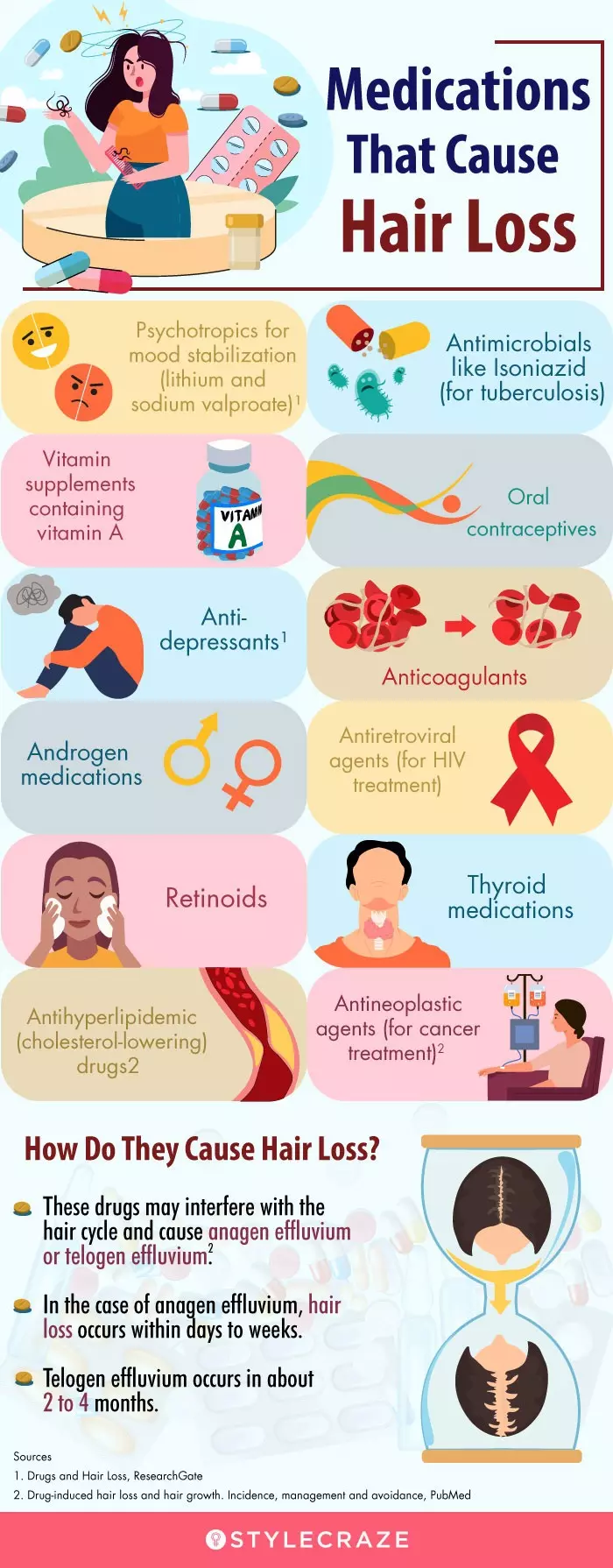
Although levothyroxine causes hair loss, it is potentially reversible, temporary, and treatable. You lose about 80-100 hair strands daily. However, if you observe a lot of hair loss, you should see a doctor. When the dosage is reduced, you are more likely to detect hair growth. However, while levothyroxine must be taken for the rest of your life in most situations, you must also work on improving your lifestyle and eating habits. If you follow the appropriate habits regularly, you can improve the health of your hair and body.
Frequently Asked Questions
Can I take biotin with levothyroxine?
While no adverse reactions have been reported when taking biotin with levothyroxine, biotin may lead to false thyroid levels. Therefore, it is recommended to consult a doctor before ingesting biotin with levothyroxine.
How common is hair loss with levothyroxine?
Hair loss is a common side effect noticed in people taking levothyroxine. But, it should stop once you discontinue the drug.
What are the side effects of levothyroxine?
Apart from hair loss, other side effects of levothyroxine include nausea, weight gain or loss, puking, diarrhea, appetite changes, fever, menstrual cycle changes, etc.
What is the highest level of levothyroxine?
The highest dosage of levothyroxine is 100 mg/tablet.
Key Takeaways
- Levothyroxine is an oral medication to treat hypothyroidism that may result in occasional hair loss.
- The right dosage is important to reap its benefits without affecting your hair growth, strength, or texture.
- DIY hair masks, home remedies, and diet changes can help manage this drug-induced hair loss.
Learn about the use, dosage, and side effects of levothyroxine, a medication used to treat hypothyroidism. Get the facts by clicking on the video below to make an informed decision.
Personal Experience: Source
StyleCraze's articles are interwoven with authentic personal narratives that provide depth and resonance to our content. Below are the sources of the personal accounts referenced in this article.
i. Thyroidectomy – One Year Later https://themahoganystylist.blogspot.com/2015/09/thyroidectomy-one-year-later.htmlReferences
Articles on StyleCraze are backed by verified information from peer-reviewed and academic research papers, reputed organizations, research institutions, and medical associations to ensure accuracy and relevance. Read our editorial policy to learn more.
- Levothyroxine,
https://www.ncbi.nlm.nih.gov/books/NBK539808/ - Thyroid Disorders Associated with Alopecia Areata in Egyptian Patients
https://www.ncbi.nlm.nih.gov/pmc/articles/PMC3884928/ - Diffuse Scalp Hair Loss Due to Levothyroxine Overdose,
https://www.ncbi.nlm.nih.gov/pmc/articles/PMC4738522/ - Drug-Induced Diffuse Hair Loss in Females: An Observational Study,
http://www.astrocyte.in/article.asp?issn=2349-0977;year=2014;volume=1;issue=2;spage=80;epage=83;aulast=Garg - Drug-induced hair loss and hair growth. Incidence, management and avoidance ,
https://pubmed.ncbi.nlm.nih.gov/8018303/ - Levothyroxine,
https://www.nhs.uk/medicines/levothyroxine/ - Standardized Scalp Massage Results in Increased Hair Thickness by Inducing Stretching Forces to Dermal Papilla Cells in the Subcutaneous Tissue,
https://www.ncbi.nlm.nih.gov/pmc/articles/PMC4740347/ - Minoxidil and Its Use in Hair Disorders: a Review,
https://www.ncbi.nlm.nih.gov/pmc/articles/PMC6691938/ - Drug That Causes Hair Loss and Promotes Hair Growth-A Review,
https://www.researchgate.net/publication/300852952_Drug_that_Causes_Hair_Loss_and_Promotes_Hair_Growth-A_Review - Diffuse Hair Loss Induced by Sertraline Use,
https://www.ncbi.nlm.nih.gov/pmc/articles/PMC4589582/ - Levothyroxine overdose in a hypothyroid patient with adjustment disorder: A case report
https://www.ncbi.nlm.nih.gov/pmc/articles/PMC7566947/#:~:text=The%20common%20clinical%20signs%20following,and%20thermoregulatory%20center%20%5B3%5D.
Read full bio of Dr. Kritika Verma
Read full bio of Eshna Das
Read full bio of Krati Darak





